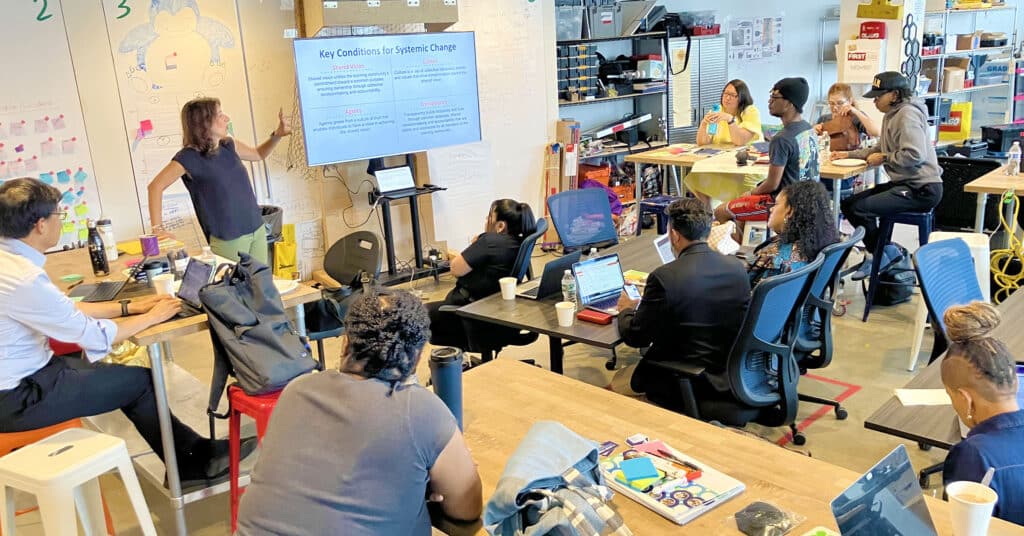As New York State stands on the edge of significant changes to its graduation requirements, educators, administrators and students across New York City Public Schools (NYCPS) are proactively positioning themselves to lead in transforming the education landscape to one that is student-centered.

A two-day workshop held in the summer of 2024 was a critical step in this movement, laying the groundwork for more performance assessments, project-based learning and innovative school models.
Organized by NYCPS district leaders and facilitated by KnowledgeWorks, the workshop brought together school teams of students, teachers and administrators as well as district level teams. The workshop focused on collaborative design, with participants engaging in hands-on activities aimed at future-fortifying their education systems. The aim was clear: imagine possibilities for the future of learning, set strategic directions and design actionable plans that align with New York State’s upcoming graduation requirement changes.
These changes promise more flexibility and innovation, providing schools with the freedom to adopt new assessment methods and models that center students’ needs and interests, ensuring they are active participants in their education. NYCPS is seizing this opportunity to rethink how students learn, assess progress and build a brighter future through personalized and project-based approaches and they have a shared desire to do this through a networked approach so that they can learn from one another. From the national vantage point, this is the most strategic way to roll out a new policy.
Throughout the workshop, several themes emerged:
- Inclusivity and Voice: Many schools recognized the need to involve more voices – students, parents, teachers and community members – in the process of shaping educational systems.
- Innovative Learning Models: Schools expressed interest in deepening their understanding of performance assessments and project-based learning. There was a strong desire to explore these models through school visits and pilot programs to test and implement new approaches.
- Continuous Collaboration: Participants valued the cross-school collaboration, energetic facilitation and the opportunity to exchange ideas. The feedback highlighted the importance of continued support throughout the school year.
With their action plans in hand, schools will continue to refine and implement their strategies over the course of the 2024-25 school year. Educators expressed their hope for continued intervisitations and deeper support for implementing their action plans, along with a more concrete structure for the rollout of the new graduation requirements. The desire for senior leadership to experience these collaborative design workshops was also evident, with many believing that a more inclusive approach at all levels would accelerate meaningful change.
With continued effort and support, New York City could serve as a model for education reform across the state.






